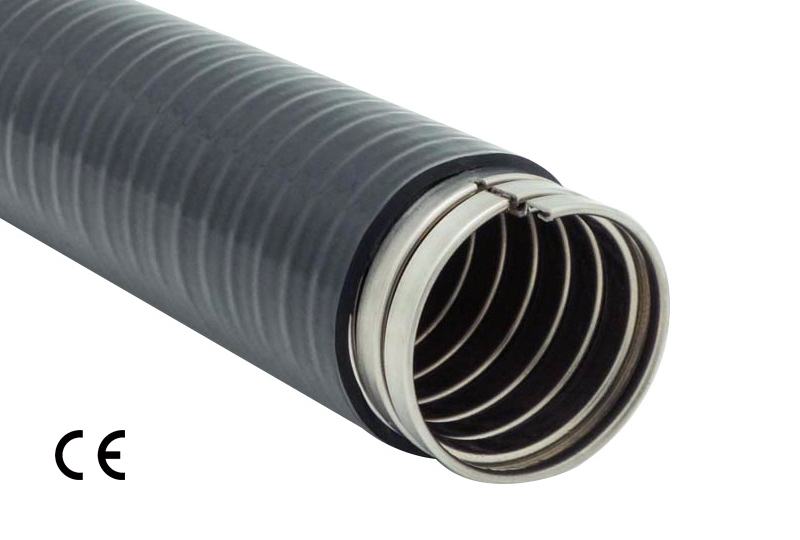Frequently Asked Questions about Waterproof Flexible Metal Conduit
Waterproof Flexible Metal Conduit is a type of conduit designed to provide protection to electrical wiring in environments where moisture or liquids may be present. Unlike traditional rigid conduits, flexible metal conduits offer the advantage of adaptability and ease of installation, making them ideal for various applications.
1. How Does Waterproof Flexible Metal Conduit Differ from Standard Conduit?
Waterproof Flexible Metal Conduit differs from standard conduit in its construction and flexibility. It is made from a durable metal material that allows it to bend and flex without compromising its protective capabilities. The waterproof feature ensures added resistance to moisture, making it suitable for use in damp or wet conditions.
2. Where is Waterproof Flexible Metal Conduit Typically Used?
This type of Flexible conduit finds applications in various industries and environments. Common uses include outdoor installations, underground wiring, and areas prone to exposure to liquids. Industries such as manufacturing, telecommunications, and construction often utilize waterproof flexible metal conduits to safeguard electrical wiring.
3. What Materials are Used in the Construction of Waterproof Flexible Metal Conduit?
Waterproof Flexible Metal Conduit is typically constructed from materials such as galvanized steel or stainless steel. These materials provide durability and corrosion resistance, ensuring a long lifespan even in challenging environmental conditions.
4. How is Waterproof Flexible Metal Conduit Installed?
Installation of waterproof flexible metal conduit involves threading wires through the conduit and securing it in place using appropriate fittings. The flexibility of the conduit allows for easy maneuvering around obstacles, making installation more straightforward compared to rigid conduits. Proper sealing and waterproof fittings should be used to maintain the conduit's protective properties.
5. Does Waterproof Flexible Metal Conduit Require Maintenance?
While waterproof flexible metal conduit is designed to withstand harsh conditions, regular inspections are advisable. Check for any signs of wear, damage, or corrosion, especially in outdoor or exposed installations. Prompt repairs or replacements should be carried out if any issues are identified.
6. Can Waterproof Flexible Metal Conduit be Used in Hazardous Locations?
Yes, Waterproof Flexible Metal Conduit is suitable for use in hazardous locations where the presence of moisture or flammable substances is a concern. However, it's crucial to adhere to local regulations and ensure that the conduit meets the required safety standards for hazardous environments.
7. Is Waterproof Flexible Metal Conduit Resistant to UV Exposure?
Waterproof Flexible Metal Conduit made from UV-resistant materials can withstand exposure to sunlight without degradation. It's recommended to use conduits specifically designed for outdoor applications to ensure prolonged UV resistance.
8. Are There Different Sizes Available for Waterproof Flexible Metal Conduit?
Yes, Waterproof Flexible Metal Conduit comes in various sizes to accommodate different wire gauges and installation requirements. It's essential to choose the correct size based on the application and the amount of wiring to be enclosed.
9. Can Waterproof Flexible Metal Conduit be Used for Above-Ground Installations?
Yes, waterproof flexible metal conduit is suitable for both above-ground and underground installations. When used above ground, it provides protection against moisture, and its flexibility allows for easy routing around structures and obstacles.
10. Where Can I Purchase Waterproof Flexible Metal Conduit?
Waterproof Flexible Metal Conduit is available at electrical supply stores, hardware stores, and online retailers. Ensure that you purchase from reputable suppliers to guarantee the quality and compliance of the conduit with industry standards.
In conclusion, understanding the key aspects of Waterproof Flexible Metal Conduit is crucial for ensuring the safety and reliability of electrical installations in challenging environments. Whether used in industrial settings or outdoor applications, this type of conduit offers a versatile solution for protecting wiring from moisture and external elements.
161
0
0



Comments
All Comments (0)